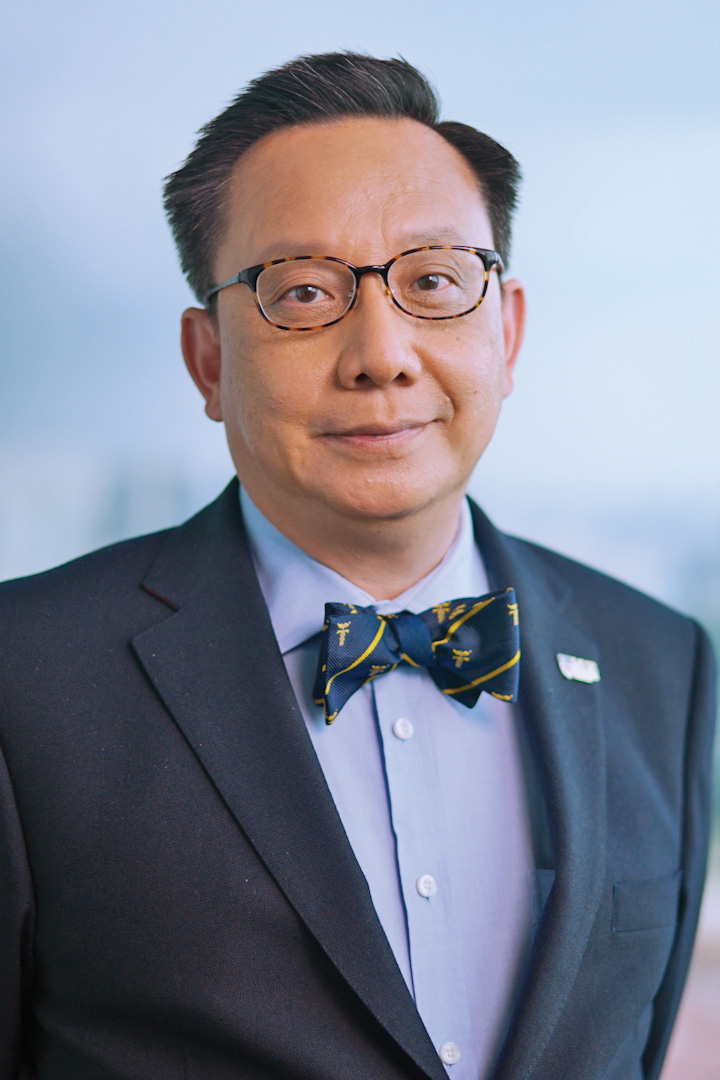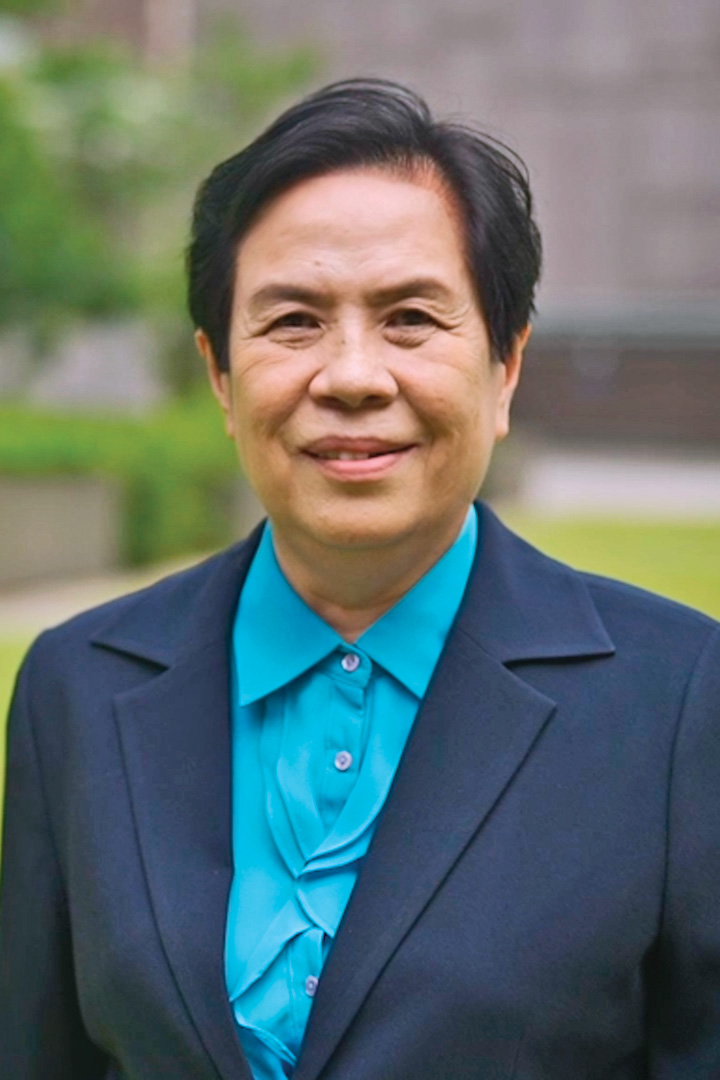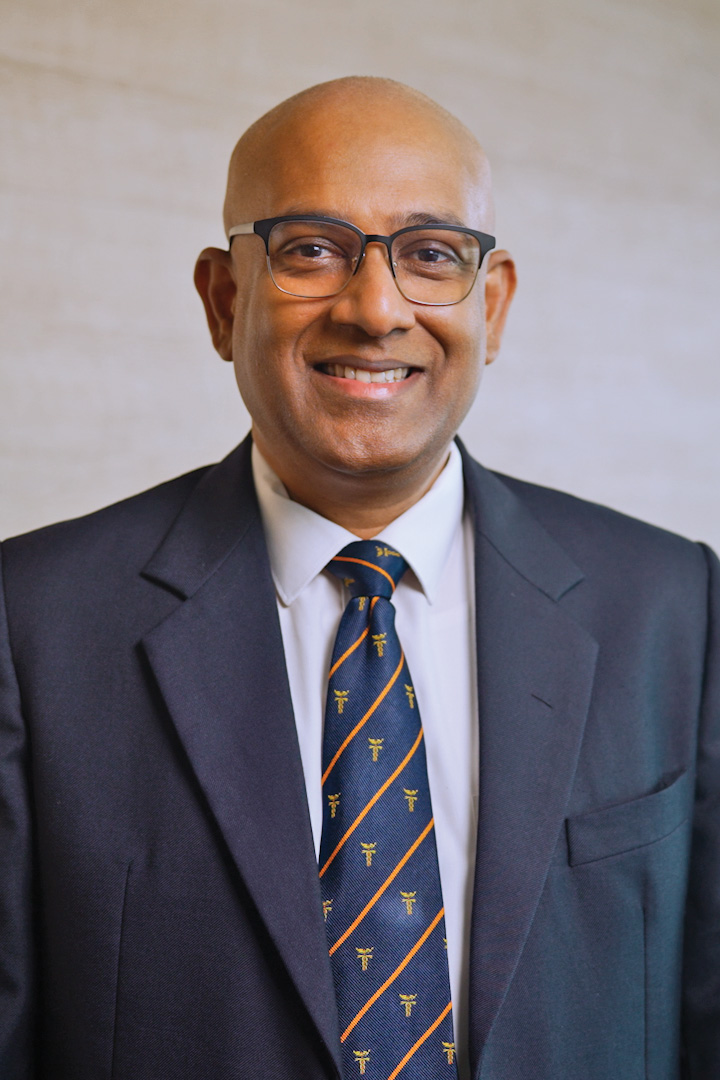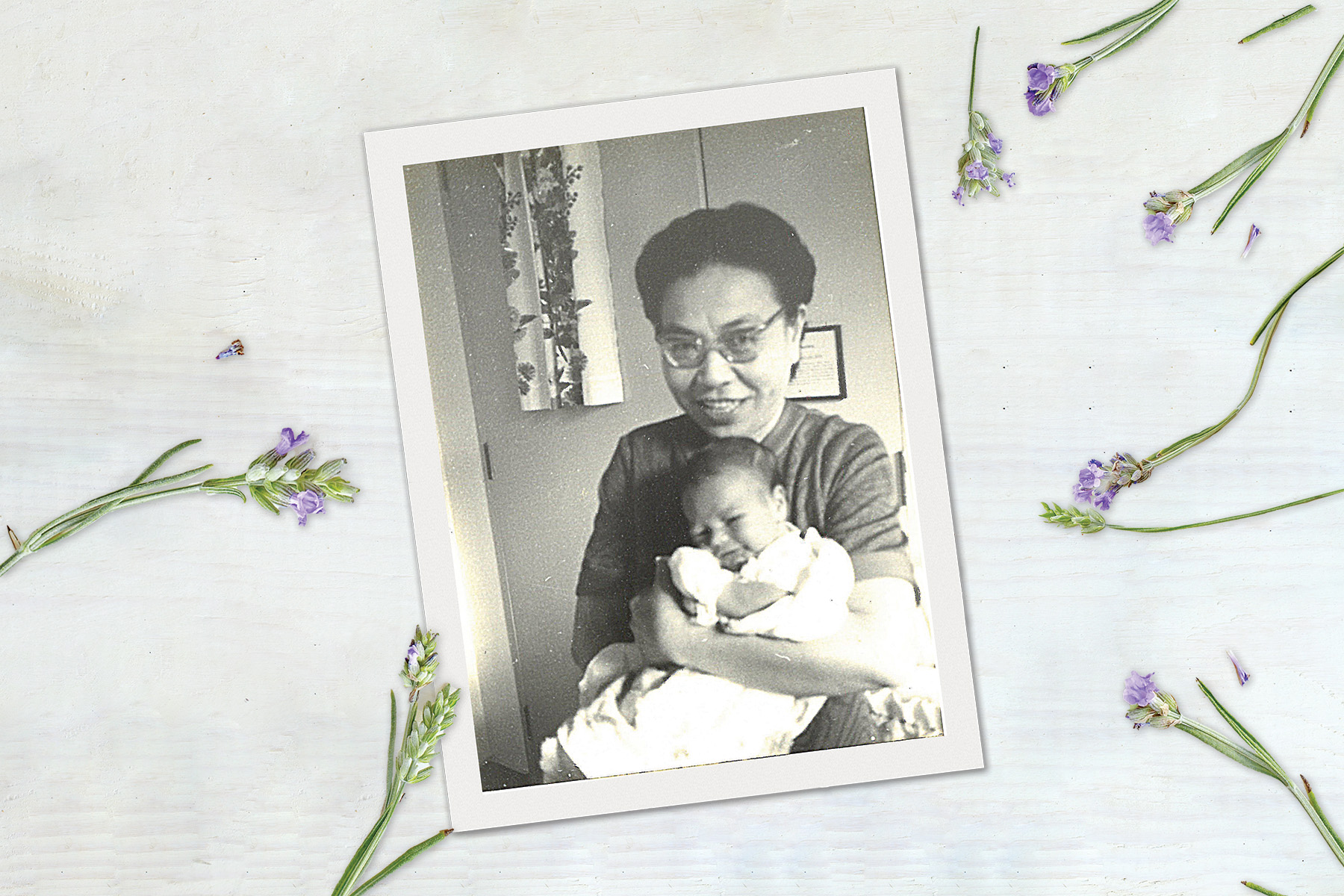
Issue 43 / August 2022
The Banyan Tree
Insights on Lifelong Learning from NUS Medicine Senior Management


Chong Yap Seng
Lien Ying Chow Professor in Medicine
Dean, NUS Yong Loo Lin School of Medicine
Q: How does the school’s vision and mission translate to its commitment to leading and advocating lifelong learning in healthcare?
Prof Chong: The School’s vision is “Inspiring Health for All”. This means that the School is intent on going beyond sick care and the management of diseases to promoting health for everybody. To do that, doctors need to broaden their knowledge by continuously learning and training in topics such as information technology, economics and humanities.
Q: How is the school’s Continuing Education and Training (CET) changing global healthcare through its work? What are your goals for the school in shaping the global healthcare CET landscape?
Prof Chong: The Yong Loo Lin School of Medicine (NUS Medicine) is perfectly situated to help educate the world about Asian health patterns, diseases, and environments. We have a diverse range of faculty members who are experts, and we are also working with global partners to create platforms that will effectively deliver continuing education and training through the use of technologies and social media.

Professor Emily Ang
Head, Alice Lee Centre for Nursing Studies
NUS Yong Loo Lin School of Medicine
Q: What are the motivations and goals for delivering CET programmes and how are the programmes designed to translate theory into practice?
Prof Ang: A major part of what we do in CET is to collaborate with hospitals and institutions worldwide to advance learning and research. Synergistic exchanges help ensure the sustainability of the global healthcare ecosystem.
Q: How does hands-on learning help advance a learner’s career development and deliver high quality care to patients?
Prof Ang: Utilising simulation technology, we immerse our learners in realistic scenarios, so that they get an acute awareness of their surroundings and the stress of applying knowledge under pressure. To effectively train our learners in both clinical health assessment and clinical reasoning, we combine virtual simulation and role play. After learners practise history taking and hone communication skills with computer-generated patients on the Virtual Integrated Patient application, we scaffold and reinforce the learning through role play with standardised patients.

Dr Dujeepa Samarasekera
Head, Centre for Medical Education
NUS Yong Loo Ling School of Medicine
Q: What is the andragogy teaching framework that NUS Medicine adopts in training adult learners in continuing medical education?
Dr Samarasekera: Our continuous education and training programme is anchored on andragogy principles. As mature learners, they like to take control of their learning, which is what we term to be “self-directed learning behaviours”. When they use self-directed learning behaviours, we co-create some of the content with them, so that it is meaningful to them, and they can apply that in their immediate learning or immediate practice.
Q: How does transformative learning theory drive the creation of relevant, useful, and high-value CET programmes for adult learners?
Dr Samarasekera: Transformative learning theory posits that learning transcends simply acquiring knowledge. Our CET programmes use the best evidence and examples to create content. This content is then contextualised to one’s own practice areas to make it meaningful for our learners. In this way, learners can apply what they learnt into their respective practice areas that then creates a transformative learning process and experience for them.




